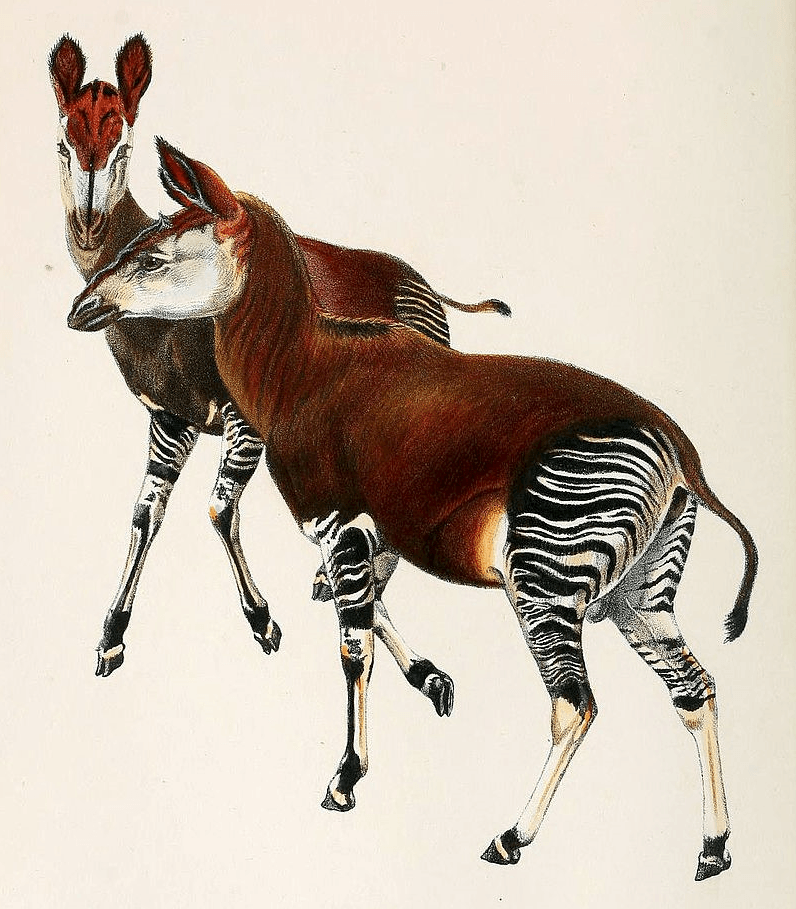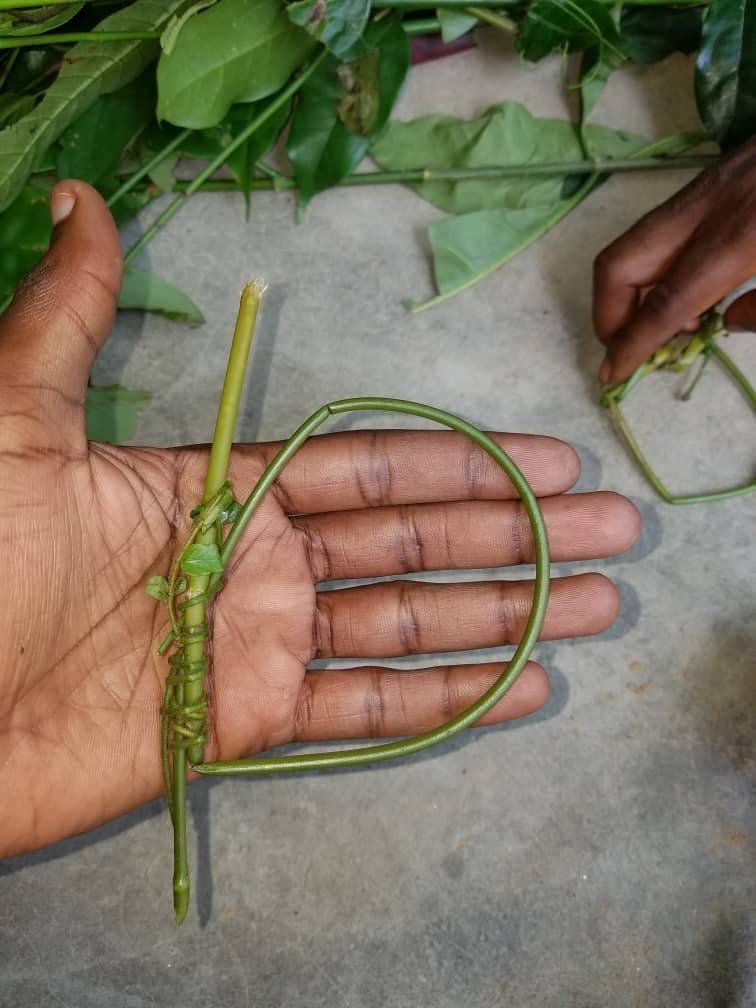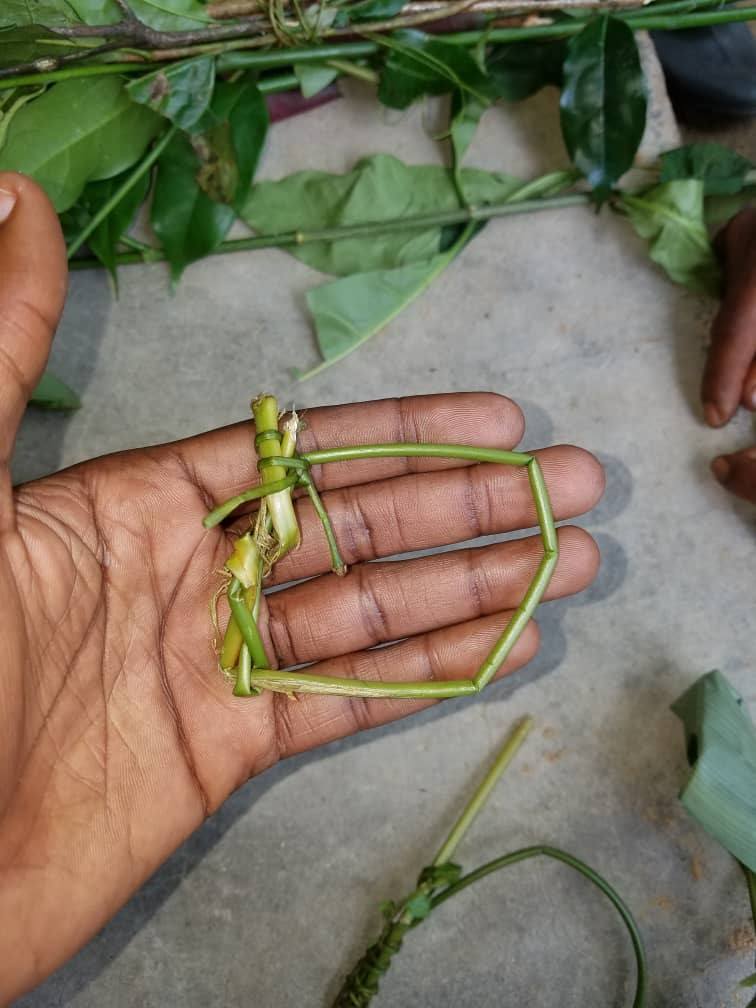During the most recent trip to Epulu, John Lukas of Okapi Wildlife Project spoke about the importance of involving the Mbuti pygmies in monitoring activities around the Okapi Wildlife Reserve. The Mbuti have a special relationship with okapi and have a very important role to play in the protection, management and understanding of the Reserve ecosystem. One item in particular we are excited to explore is when wild okapi calves leave their mother. Typically, okapi calves in human care are separated around 10 months of age based on behaviors exhibited between mother and calf, but it is not known when they separate from their mother in the wild.
We are excited to see the Mbuti take the initiative on this project and after we introduced them to the idea, they almost immediately discovered a mother and calf pair just four kilometers from Epulu!
The Mbuti pygmies and the okapi have a relationship that extends back over 40,000 years, sharing the Ituri Forest as their home, living in harmony with each other. In Mbuti culture, it is taboo to harm okapi and chimpanzees as they embody important spirits of the forest. Without the aid of the Mbuti’s understanding of the forest and their impeccable tracking skills, Sir Harry Johnston would have never been able to collect skull and hide specimens to confirm the existence of the okapi to the western world in 1901. Before these specimens were found, okapi were still believed to be the “African unicorn” and possible relatives of the zebra or donkey. Thanks to help from the Mbuti who provided skins and descriptions of okapi, the world learned okapi are a real animal and not a unicorn at all.




